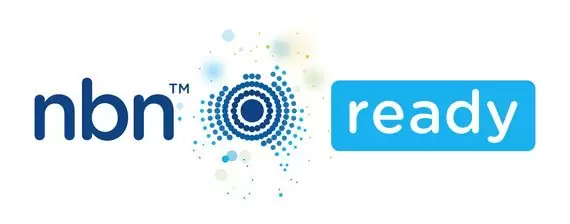Breaking down VoIP phone costs in Australia: Are they worth it?
Voice over Internet Protocol (VoIP) systems are revolutionising how Australian businesses communicate, offering an affordable and cutting-edge alternative to traditional phone lines. With 82% of companies reporting significant savings after switching to cloud communication, it's no surprise that these communication systems are rapidly becoming the go-to choice for businesses interested in cutting costs and boosting efficiency.
However, evaluating the costs and benefits of VoIP is crucial for small businesses that want to switch to VoIP. While upfront expenses and subscription fees are factors to consider, the potential for long-term savings and enhanced functionality make VoIP systems a compelling choice.
This blog breaks down the key costs associated with VoIP phone systems, including setup fees, subscription models, and additional features, and highlights the value they bring to businesses.
What factors influence VoIP phone cost?
Understanding the components of VoIP phone costs helps businesses make informed decisions. Here are the primary factors:
Hardware expenses
Implementing a VoIP system may require specific hardware, such as IP phones, routers, and adapters. While many VoIP solutions allow the use of existing devices like computers or smartphones, investing in dedicated equipment can improve call quality and reliability. Costs for hardware vary based on the provider and the business's specific needs.
Installation and setup fees
The initial setup of a VoIP system might involve infrastructure upgrades, professional installation, and software configuration. For businesses with existing internet setups, these costs may be minimal. However, companies requiring network enhancements should budget for additional expenses.
Subscription plans
VoIP services typically operate on monthly subscription models tailored to business size and requirements. Plans can include features like unlimited calls, mobile app access, and priority customer support. Pricing tiers allow businesses to choose options that align with their needs and budgets.
Additional features
Many VoIP systems offer advanced features such as call forwarding, voicemail-to-email, and call analytics. While basic plans often include these tools, some premium features may incur extra fees. Businesses should assess which features are essential for their operations to avoid unnecessary costs.
How can businesses benefit from switching to VoIP in terms of cost?
Switching to a VoIP system can deliver substantial cost savings and operational efficiencies for Australian businesses. Here’s how:
Reduced call costs
VoIP systems offer lower rates for local, long-distance, and international calls compared to traditional landlines. This is particularly advantageous for businesses with overseas clients or remote teams, as unlimited calling plans can significantly reduce expenses.
Lower infrastructure and maintenance costs
Traditional phone systems require extensive infrastructure and ongoing maintenance, which can be costly. VoIP eliminates the need for physical landlines, reducing maintenance expenses. With most services hosted in the cloud, businesses benefit from seamless updates and minimal downtime.
Scalability and flexibility
VoIP systems are designed to scale easily. Businesses can add or remove lines and features as needed without incurring major expenses. This flexibility ensures that growing businesses can adjust their communication systems without financial strain.
Remote work efficiency
VoIP supports remote work by enabling employees to access the system from any location with an internet connection. This reduces the need for office space and other overhead costs while maintaining team productivity and communication continuity.
The long-term savings and benefits of investing in VoIP systems
Investing in a VoIP system offers more than immediate cost savings; it positions businesses for long-term success.
Cost-effective communication
With VoIP, businesses save on long-distance and international call rates. There’s also no need for expensive on-site systems, further reducing operational costs and overall VoIP phone costs.
Advanced features at no extra cost
VoIP plans often include features like voicemail-to-email, automated attendants, and call routing at no additional cost. These tools enhance productivity and streamline operations, offering excellent value for the overall VoIP phone cost.
Future-proof technology
Unlike traditional systems that require costly upgrades, VoIP systems are regularly updated with the latest features. This ensures businesses stay competitive without the need for significant additional investment.
Business growth and scalability
Expanding your communication system is simple with VoIP. Whether adding new lines, integrating mobile solutions, or expanding to multiple locations, VoIP supports business growth without the complications and expenses associated with traditional systems.
Is VoIP the right choice for your business?
VoIP phone systems offer a cost-effective, flexible, and scalable solution for Australian businesses looking to enhance their communication infrastructure. By eliminating the need for traditional landlines and providing advanced features at competitive prices, VoIP systems help businesses save money while improving efficiency.
As the demand for remote work and digital communication continues to grow, investing in a VoIP system ensures your business is equipped for the future. Explore VoIP phone price options, tailored plans and advanced features to find a cloud-based solution for your business needs.
FAQs
Are there hidden costs associated with VoIP services?
Most VoIP plans are transparent, but businesses should review contracts carefully to identify any fees for premium features, international calls, or additional support services.
How quickly can I set up a VoIP system for my business?
Many VoIP systems can be set up within a few days. Some providers offer easy plug-and-play solutions, making implementation seamless for small and medium-sized businesses.
Can VoIP systems handle high call volumes?
Yes, VoIP systems are built for scalability and can efficiently manage increasing call demands. This makes them suitable for businesses with high call volumes or seasonal fluctuations.
What equipment is needed for a VoIP system?
VoIP systems typically require an internet connection, IP phones, and optional devices like headsets or adapters. Many providers allow businesses to use existing hardware, reducing initial setup costs.



